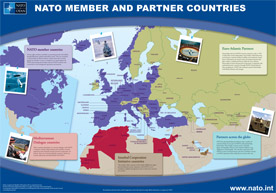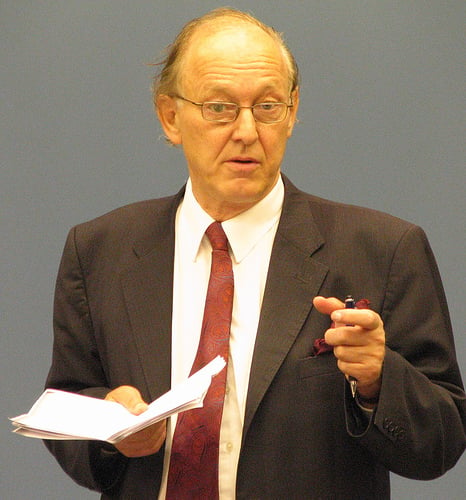“Weak Diplomacy”: Upcoming NATO Summit Directed Against Russia: Michel Chossudovsky
The upcoming NATO summit in Wales is held to build a political consensus directed against Russia

The upcoming NATO summit in Wales is a public relations stunt aimed at building a political consensus directed against Russia and to accuse the country of interfering in Ukraine’s internal affairs, according to Professor Michel Chossudovsky, director of the Center for Research on Globalization.
“The fact that Russia is not invited to the NATO summit indicates that the meeting is directed against Russia, and that’s the main objective of that meeting,” Chossudovsky told RIA Novosti.
“It’s not to say that the meeting involves any kind of military planning. The military planning will take place elsewhere. The purpose of that meeting is strictly public relations,” he added.
Chossudovsky argued that many NATO members are the US’ political puppets, blindly following Washington’s strategies. 
“It’s there to twist the arms of the heads of state, heads of government from these 60 countries. Many of these leaders already are pro-US. That’s a consensus of politicians, many of whom are political puppets,” Chossudovsky asserted, adding that consensus among members is usually achieved through various forms of blackmail.
Chossudovsky expressed doubt about NATO’s willingness to solve the Ukrainian conflict in a diplomatic way and stressed that if NATO were committed to a peaceful solution in Ukraine, it would indeed invite Russia to the summit.
“That would be dialogue,” he said.
“However, they’ve lost the type of diplomacy which existed during the Cold War era, when there was a civilized East-West relationship between heads of state, polite and constructive in many cases. And now we have only people who have very little ability to actually negotiate,” he added.
This week’s meetings between the Russian president and his Ukrainian counterpart Chossudovsky considers as an another example of weak diplomacy and poor negotiations.
“While Poroshenko wants to have bilateral discussions with Russia regarding east Ukraine, he does not want to negotiate with the federalists,” the expert explained, underlining that Putin insisted that any solution to the crisis in east Ukraine has to be negotiated among the parties concerned.
Chossudovsky believes that Poroshenko’s discussions with Putin were carefully prepared in advance with Western advisers.
“Poroshenko does not make any decisions, but at the same time he is complicit in extensive war crimes committed against the people of southeast Ukraine,” he asserted.
“I have to underscore the fact that the Ukrainian government is not a legitimate government, Moreover, it does not decide on anything. Mr. Poroshenko is a puppet of the United States,” Chossudovsky concluded.
NATO members are scheduled to meet next week in Wales to discuss the alliance’s response to Russia, which it accuses of interfering in Ukrainian affairs.
The summit will focus on “the evolution of partnerships” of NATO with nonmembers and on the “narrative for the Post-2014 era” of the relevance of NATO’s existence in the post-Cold War period and its future after US troops withdraw from Afghanistan at the end of the year.
The leaders of some 60 countries are expected to attend the summit.

